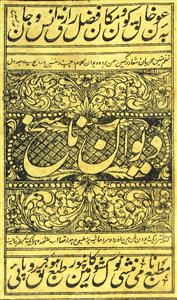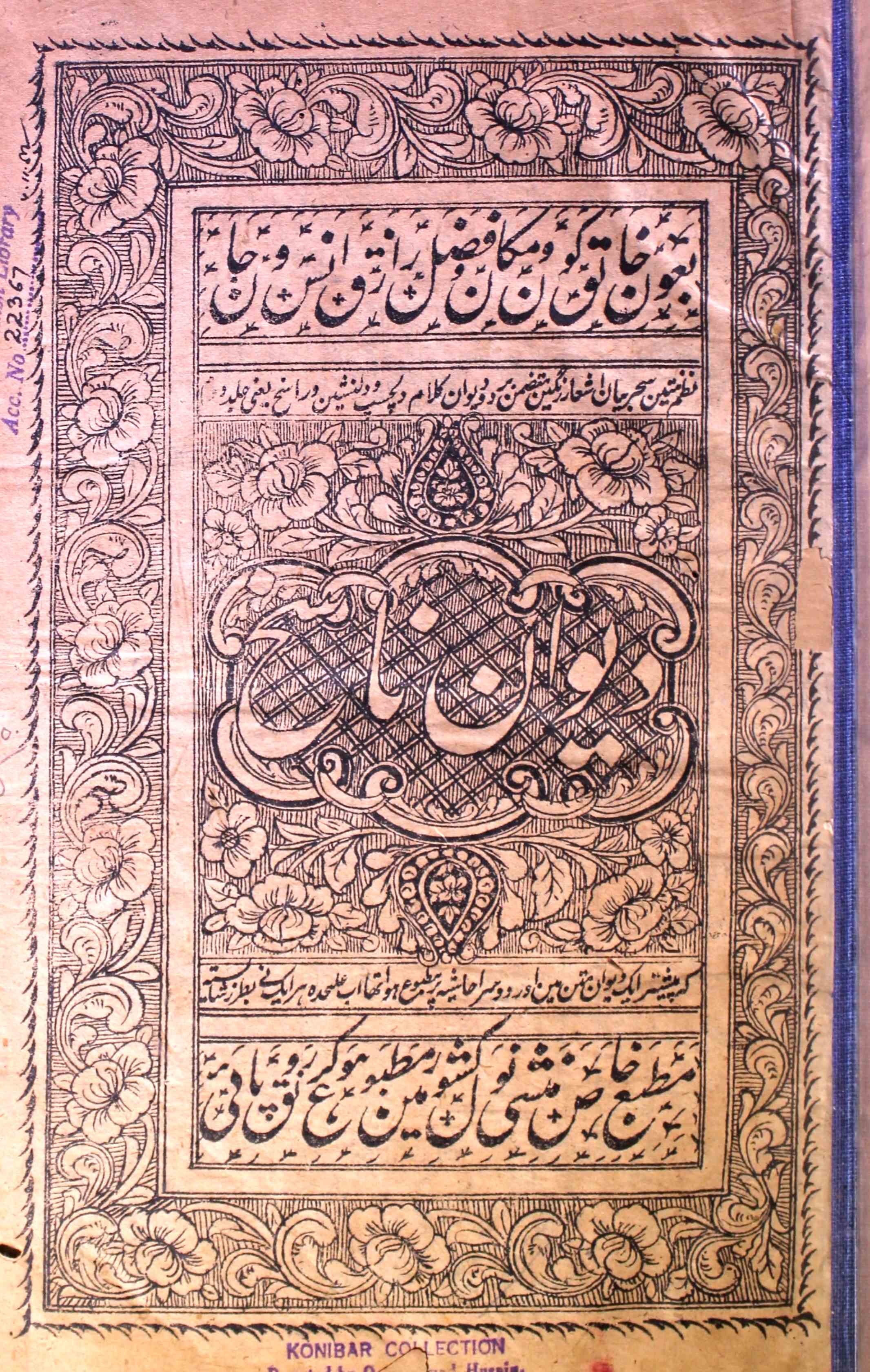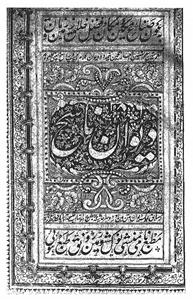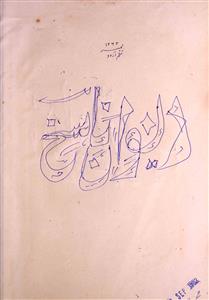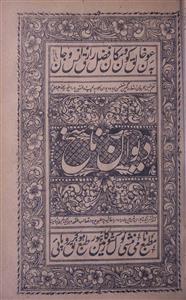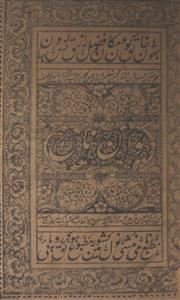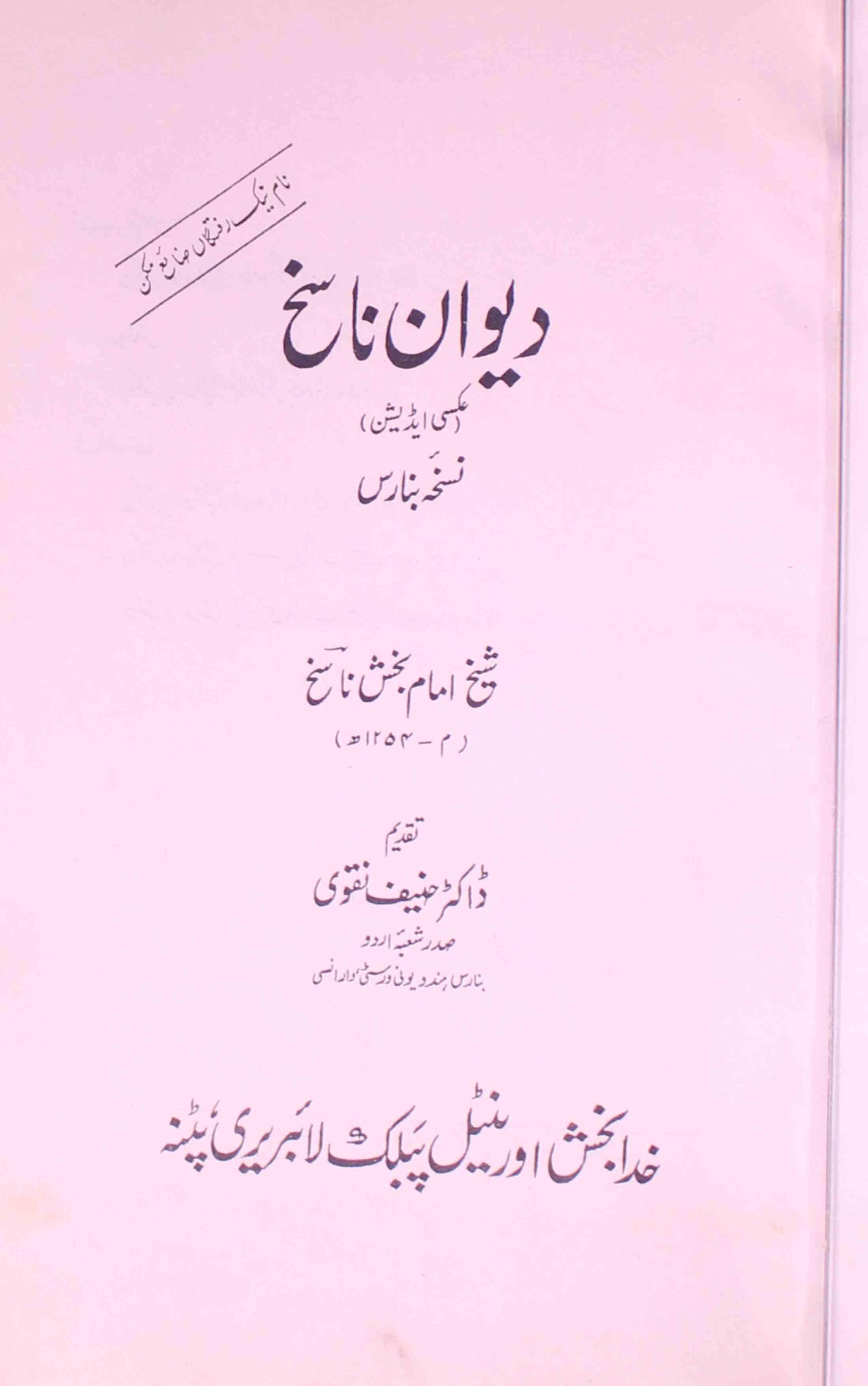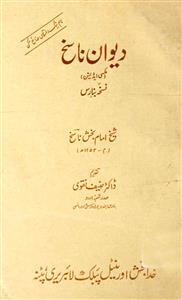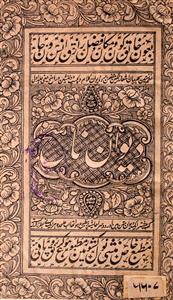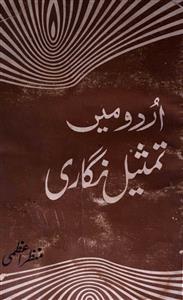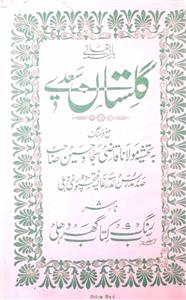 For any query/comment related to this ebook, please contact us at haidar.ali@rekhta.org
For any query/comment related to this ebook, please contact us at haidar.ali@rekhta.org
About The Book
شیخ امام بخش ناسخ اردو غزل میں ایک عہد ساز شخصیت کا نام ہے۔ان کو شاعری کے لکھنو اسکول کا بانی کہا جاتا ہے۔ ناسخ اسکول کا سب سے بڑا کارنامہ اصلاح زبان ہے۔ لکھنؤیت سے شاعری کا جو خاص رنگ مراد ہے اور جس کا سب سے اہم عنصر خیال بندی کہلاتا ہے، وہ ناسخ اور ان کے شاگردوں کی کوشش و ایجاد کا نتیجہ ہے۔ ناسخ اپنی شاعری میں لفظوں کے نئے نئے تلازمے تلاش کرکے ان کے لئے نئے استعارےوضع کرتے ہیں وہ بے جوڑ الفاظ میں اپنی صناعی سے ربط پیدا کرکے قاری کو اک حیرت آمیز مسرت سے دوچار کرتے ہیں۔ان کی بلند آہنگی ذہنوں کو متاثر کرتی ہے۔وہ اپنی خیال آفرینی میں بھاری بھرکم الفاظ استعمال کرتے ہیں۔ بلند آہنگی ناسخ کے کلام کا عام جوہر ہے جو دل کو نہ سہی دماغ کو ضرور متاثر کرتا ہے۔ ناسخ لفظوں کے پرستار تھے ان کے معنی ان کے لئے ثانوی اہمیت رکھتے تھے۔ اور یہی لکھنوی شاعری کا عام جوہر قرار پاتا ہے۔ زیر نظر "دیوان ناسخ" میں ان کی شاعری کا یہی رنگ غالب ہے۔ لیکن ناسخ کے کلام کا ایک حصہ، چھوتا ہی صحیح سادہ بھی ہے یہ اس رنگ سے جدا ہے جس کے لئے وہ مشہور یا بدنام ہیں۔ ناسخ چونکہ اپنے معاشرہ کا عکس تھے لہٰذا ان کے کلام میں بھی اس معاشرہ کی خوبیوں اور خرابیوں کا آجانا لازمی تھا۔ یہ چیزیں ان کے دونوں دیوانوں میں بخوبی محسوس کی جاسکتی ہیں۔ خیال رہے کہ اس نسخہ میں ناسخ کے دو دیوان شامل ہیں۔
About The Author
Sheikh Imam Bakhsh Nasikh (1772-1838) was born in Faizabad and later travelled to Lucknow. He had his education in Arabic and Persian. On account of his keen poetic sensibility and sound training in the skills of language, he had his disciples in the nobility. A man of integrity, he did not, however, vie for reaping any benefits from them. In fact, he became a victim of serious political bickering and left Lucknow for Allahabad.
Nasikh earned his reputation not as a great poet but as a great craftsman of poetry. He deliberated upon language, syntax, and the poetic devices which he employed to turn a composition into a work of art. Literary circles in Delhi came to hear of his distinct merit, and considered him worth emulating. He played a significant role in secularising Urdu while respecting the classical norms of language and style. In doing this, he expanded the frontiers of vocabulary, adopted a non-puritanical approach, and modernised it. His individuality lies in imparting an Indo-Persian nature to his verse. This also explains his kinship with poets like Sauda, Mir and Dard, who also deliberated upon the nature and function of language and the modes of poetic expression. Not a poet of great metaphysical depth, Nasikh’s merit lies in his technical virtuosity, linguistic finesse, and his ability to control and modulate the intricate line and the unusual rhythm.
 For any query/comment related to this ebook, please contact us at haidar.ali@rekhta.org
For any query/comment related to this ebook, please contact us at haidar.ali@rekhta.org
Write a Review
Jashn-e-Rekhta 10th Edition | 5-6-7 December Get Tickets Here
